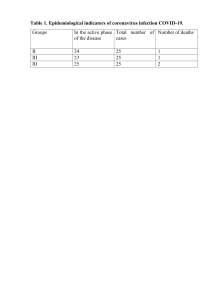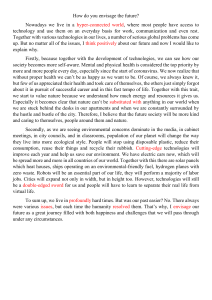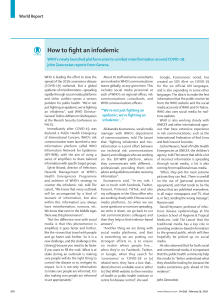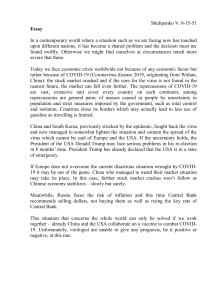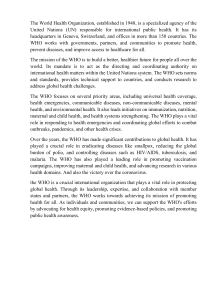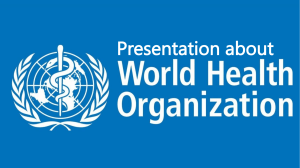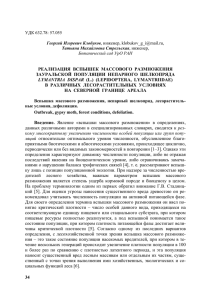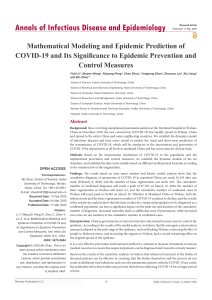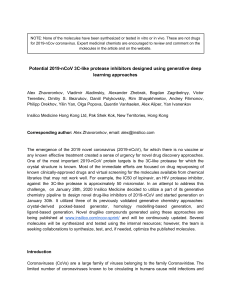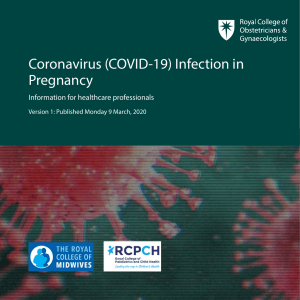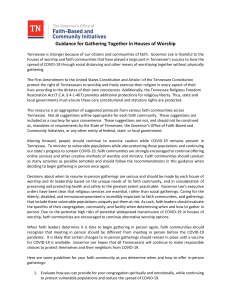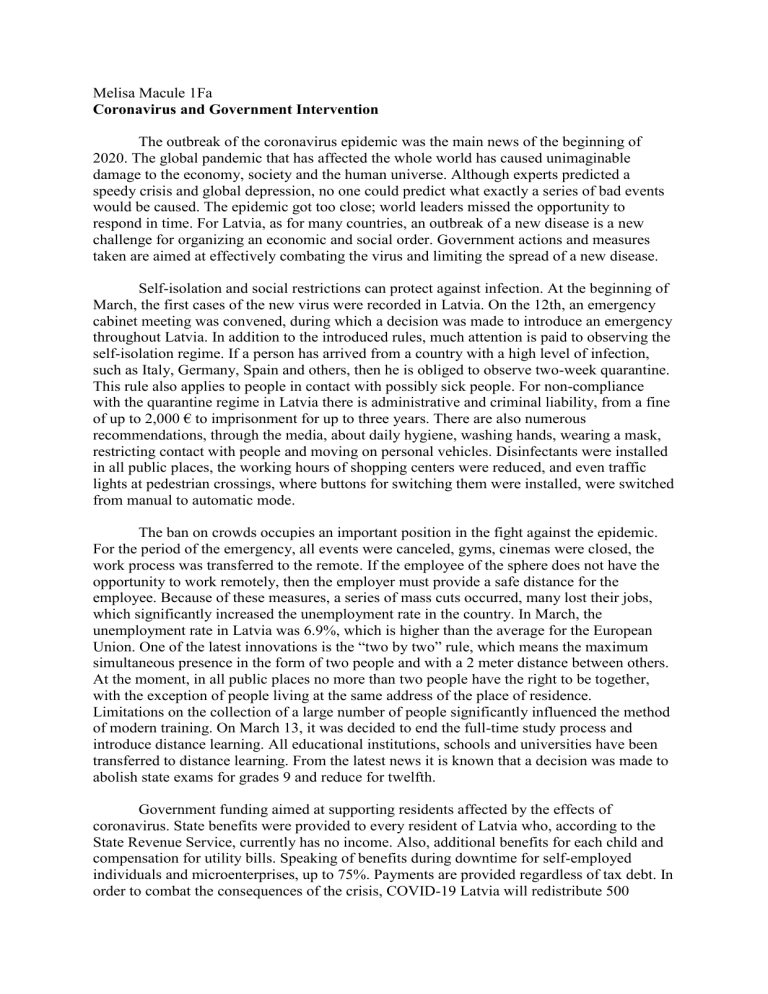
Melisa Macule 1Fa Coronavirus and Government Intervention The outbreak of the coronavirus epidemic was the main news of the beginning of 2020. The global pandemic that has affected the whole world has caused unimaginable damage to the economy, society and the human universe. Although experts predicted a speedy crisis and global depression, no one could predict what exactly a series of bad events would be caused. The epidemic got too close; world leaders missed the opportunity to respond in time. For Latvia, as for many countries, an outbreak of a new disease is a new challenge for organizing an economic and social order. Government actions and measures taken are aimed at effectively combating the virus and limiting the spread of a new disease. Self-isolation and social restrictions can protect against infection. At the beginning of March, the first cases of the new virus were recorded in Latvia. On the 12th, an emergency cabinet meeting was convened, during which a decision was made to introduce an emergency throughout Latvia. In addition to the introduced rules, much attention is paid to observing the self-isolation regime. If a person has arrived from a country with a high level of infection, such as Italy, Germany, Spain and others, then he is obliged to observe two-week quarantine. This rule also applies to people in contact with possibly sick people. For non-compliance with the quarantine regime in Latvia there is administrative and criminal liability, from a fine of up to 2,000 € to imprisonment for up to three years. There are also numerous recommendations, through the media, about daily hygiene, washing hands, wearing a mask, restricting contact with people and moving on personal vehicles. Disinfectants were installed in all public places, the working hours of shopping centers were reduced, and even traffic lights at pedestrian crossings, where buttons for switching them were installed, were switched from manual to automatic mode. The ban on crowds occupies an important position in the fight against the epidemic. For the period of the emergency, all events were canceled, gyms, cinemas were closed, the work process was transferred to the remote. If the employee of the sphere does not have the opportunity to work remotely, then the employer must provide a safe distance for the employee. Because of these measures, a series of mass cuts occurred, many lost their jobs, which significantly increased the unemployment rate in the country. In March, the unemployment rate in Latvia was 6.9%, which is higher than the average for the European Union. One of the latest innovations is the “two by two” rule, which means the maximum simultaneous presence in the form of two people and with a 2 meter distance between others. At the moment, in all public places no more than two people have the right to be together, with the exception of people living at the same address of the place of residence. Limitations on the collection of a large number of people significantly influenced the method of modern training. On March 13, it was decided to end the full-time study process and introduce distance learning. All educational institutions, schools and universities have been transferred to distance learning. From the latest news it is known that a decision was made to abolish state exams for grades 9 and reduce for twelfth. Government funding aimed at supporting residents affected by the effects of coronavirus. State benefits were provided to every resident of Latvia who, according to the State Revenue Service, currently has no income. Also, additional benefits for each child and compensation for utility bills. Speaking of benefits during downtime for self-employed individuals and microenterprises, up to 75%. Payments are provided regardless of tax debt. In order to combat the consequences of the crisis, COVID-19 Latvia will redistribute 500 million euros from European funds. To reduce the negative economic consequences, money will be invested in projects with a high degree of readiness for economic significance. Most will be spent on strengthening health services, on tools to support entrepreneurs, on measures to support employment and the provision of social services, and funding will also be allocated for measures to improve the economy. All government measures taken are aimed at limiting and controlling the spread of the disease. There are currently 858 reported cases of COVID-19 in the country. Over the last day (04/30/20) another 9 people felt ill. It is believed that the peak of the epidemic in the country has passed and is moving towards the early lifting of quarantine measures. The adopted measures as self-isolation and a ban on crowding gives a positive effect and hope for a speedy improvement of the situation. State funding will help to maintain the standard of living of people during an emergency and limit the possible consequences of the crisis.
